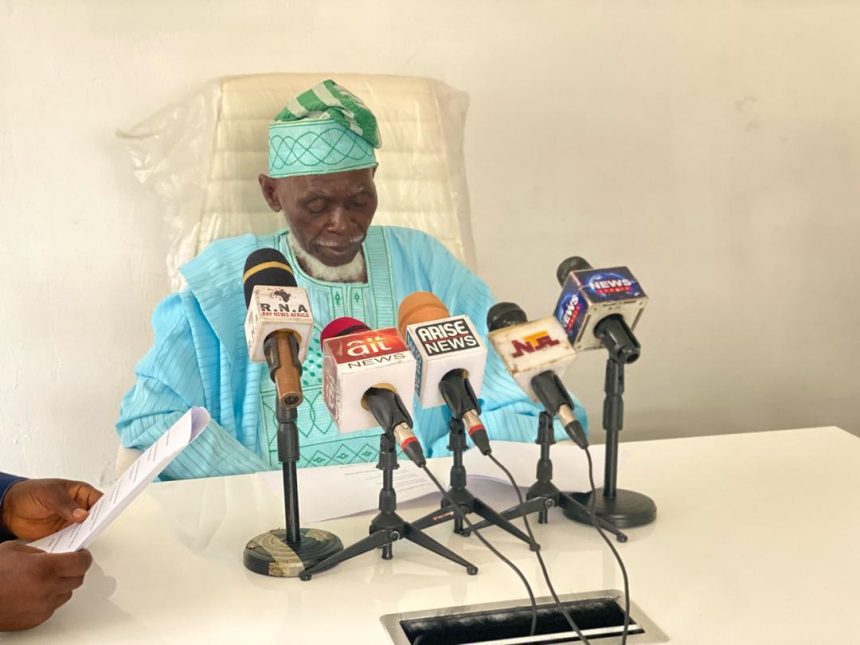The Labour Party (LP) is embroiled in a deepening leadership crisis as Alhaji Bashiru Lamidi Apapa declared himself the acting national chairman, citing a Supreme Court ruling that he claims invalidates Julius Abure’s leadership. This development has intensified the factional disputes within the party, which has been grappling with internal conflicts since its notable performance in the 2023 general elections.
During a press conference in Abuja, Apapa, formerly the party’s deputy national chairman, asserted that the Supreme Court’s April 4, 2025 decision nullified all decisions made by Abure since April 2023. He stated, “Following the decision of the Supreme Court, I, Alhaji Bashiru Lamidi Apapa, as the most senior deputy national chairman, hereby take over the affairs of our great party in an acting capacity.” Apapa announced Alhaji Farouk Umar Ibrahim as the new national secretary and scheduled an emergency National Working Committee meeting for April 14.
In response, the Senator Esther Nenadi Usman-led National Caretaker Committee expressed intentions to seek clarification from the Supreme Court regarding the party’s leadership dispute. In a statement co-signed by Usman and Senator Darlington Nwokocha, the committee’s secretary, they indicated plans to petition the Supreme Court due to ambiguities in previous Appeal Court decisions. The statement emphasized, “The November 13, 2024, and January 17, 2025 rulings of the Court of Appeal have brought up issues that only the Supreme Court can clarify, and the Caretaker Committee has instructed their lawyer accordingly.” They urged supporters nationwide to exercise patience during this period.
The legitimacy of Apapa’s claim to leadership remains contested. Julius Abure, who has led the party since 2021, has yet to publicly respond to the Supreme Court ruling or Apapa’s declaration. Legal experts are divided on whether the court’s decision fully invalidates Abure’s position or merely refrains from judicial interference in party affairs.
Political analysts warn that ongoing internal conflicts could weaken the Labour Party ahead of future elections. Emeka Nwosu, a political commentator, noted, “This kind of internal conflict only benefits rival parties. If they don’t resolve this quickly, they risk losing whatever momentum they had left.”
As the National Working Committee prepares to meet next week, the coming days will be crucial in determining whether Apapa’s faction can consolidate control or if Abure’s supporters will mount a challenge. The Labour Party’s future hangs in the balance amid legal battles and escalating leadership disputes.








